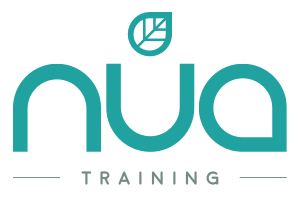
How to Banish Public Speaking Nerves and Present with Confidence
“Courage is resistance to fear, mastery of fear — not absence of fear” Mark Twain
It always surprises me how many seemingly confident people really dislike presenting or public speaking. At my wedding, my father who will happily sing in front of anyone, dreaded his “Father of the Bride” speech for weeks before. Perhaps he should have written a song, rather than a speech?
Presentations and nerves usually go hand in hand. This isn’t a bad thing, as that nervous feeling means you’re producing adrenaline, which is speeding your heart rate, getting more oxygen into your brain, to help you think faster. But, you don’t want it to become overpowering and give you stage fright.
We’ve already covered the preparation process you can go through in our previous blog Do you have a fear of public speaking – you’re not alone. Now here’s our top 7 tips to help you make the most of your nerves, just before you present.
Our Top 7 Presentation Confidence Tips
1. Meet and Greet
Arrive before your talk with enough time to familiarise and orientate yourself with the room, the audience and the technology. If time permits, have a chat with people before your presentation. Talking with the audience may give you some impromptu ideas for your talk, allows you to ask a few questions to gauge the mood, and it makes you and the audience seem more likeable and friendly.
2. Find a Quiet Place
To begin the process of calming your mind down, you need an environment that has limited distractions, where you can sit in a relaxed position with your feet flat on the floor. If there’s no better option, you can always retire to a toilet cubicle for a moment of calm and to slow your mind.
3. Practice Deep Breathing
Adrenalin causes your breathing to become shallower. This can cause voice quivers and reduce your ability to project your voice. By breathing slowly and deeply, you still increase the oxygen supply to the brain, but the gradual rhythm tricks your brain into believing you are now calmer.
4. Massage your Forehead
Speech is controlled by the frontal area of your brain. Massaging this area energises and stimulates the brain, without causing panic.
5. Chew Gum before the Presentation
It seems like a strange suggestion, but the process of chewing helps to increase your alertness, and relax the mind. Chewing some gum tricks your brain into thinking you’re safely eating a meal, and it will start producing chemicals that neutralise stress responses. When you’re less stressed, it is much easier to appear confident. No bubbles though! 🙂
6. Positive Visualisation.
If you’re feeling nervous, you may be thinking about all the things that could go wrong in the presentation. Close your eyes and visualise what a good audience response looks and feels like, and a time when you’ve created that same response when you’ve been in a group conversation. You have the skills to create that again, and your adrenaline and preparation have your brain in peak condition to make it happen now.
7. Positive Posture
Your posture can really affect how you feel and how others judge your character. Improving your posture can instantly make a positive first impression whilst simultaneously making you feel better about yourself, and more confident. A confident person stands with a straight back, shoulders back, chest out, and chin raised slightly. Practice this by loosening and resetting your posture; Slowly reach your hands up over your head to the ceiling, then flop down to grab your ankles like a rag doll. Then slowly unravel, rising up to the ceiling again. Repeat twice. Go on, have a go and see how you feel.
So nerves can be a good thing. Next time you’re in front of an audience, try using the tips above to get your nerves working for you, instead of against you!
Good presentation skills are essential in media sales. Our Presenting with Impact course and 1-2-1 presentation coaching will ensure your team delivers their next presentation with complete confidence. Get in touch with us today to enhance your teams’ performance.
Our next Tough Stuff blog looks at something lots of you have said you feel uncomfortable doing: ‘How to Ask for a Pay Rise’.
Photo by Benjamin Davies on Unsplash
